'It shows his confidence in his own ability,' Geoff Boycott tells Haresh Pandya.
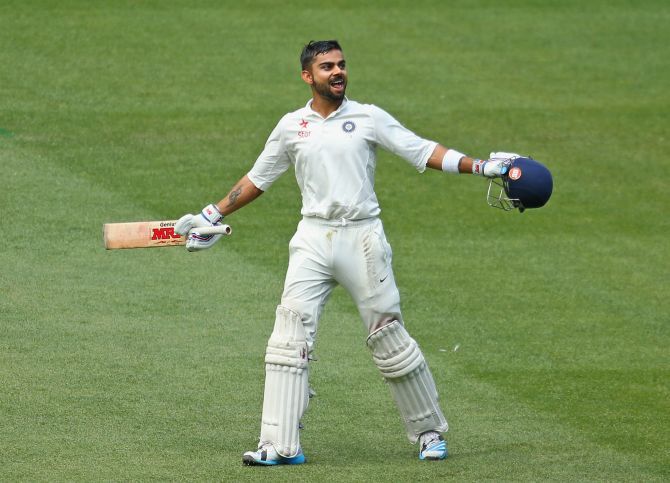
Few players can approach Geoffrey Boycott with regard to cricketing knowledge and wisdom.
And fewer still can come anywhere near the former England opener and captain when it comes to analysing batting and its practitioners.
Having played 108 Tests and scored over 48,000 first class runs with 151 centuries, Boycott, whose cricket career spanned three decades, is well equipped and perfectly qualified to shed interesting light on the art of batting and evaluate some of the most illustrious willow-wielders.
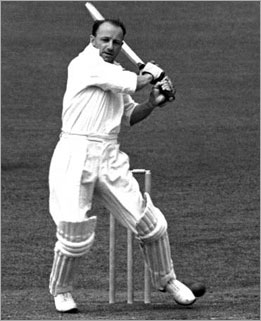
"Yet, Bradman wasn't a perfect batsman," says Boycott. "No batsman can be."
No one can approach Don Bradman even in second place. Let's admit it. He is the only batsman in the history of cricket I hail as genius. There is no other term to describe him. And he fully deserves it. What a batsman. What a phenomenal career he had," he told Haresh Pandya when engaged in a freewheeling conversation during the first Test between India and England in Rajkot.
"Bradman once scored a Test triple hundred in a single day. It sounds unbelievable. He wasn't armed with any protective gear. Helmet was unheard of even 20 years after he retired. All he had on was a baggy green cap of Australia. His eyesight was brilliant, footwork amazing and timing and placement outstanding."
"Yet, Bradman wasn't a perfect batsman. No batsman can be. Perfection is just an idea. It isn't possible in reality. And that's the beauty of batting. You can have the best of batsmen, but you can't call them perfect. Simply because there has never been a perfect batsman, not even Bradman."
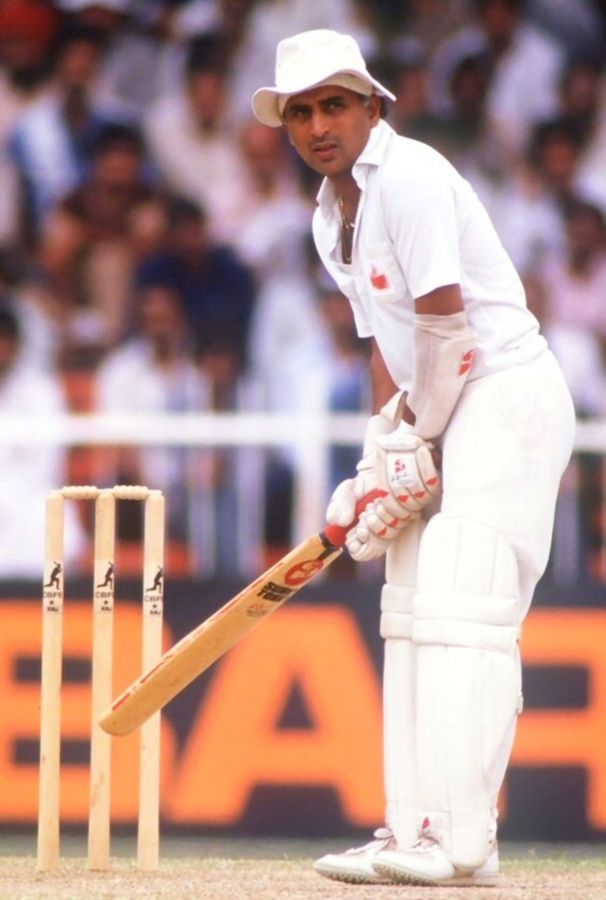
"Gavaskar was a truly great batsman," says Boycott. "Look at his impressive record against the powerful West Indies side of the 1970s and 1980s."
Boycott -- who British Prime Minister Theresa May said is her favourite cricketer -- is 76 now, but appears to be fit as a fiddle and straight as a ramrod.
When he speaks, you do not disturb him, let alone argue with him.
You just listen to him as he keeps dropping pearls of wisdom in his inimitable style.
While we were discussing batting and various batsmen, he pointed a finger at Sunil Gavaskar, who was eating his lunch outside the press box, and said: "Gavaskar was a truly great batsman. Gundappa Viswanath, too, was a very good batsman. But Gavaskar was great, Viswanath was good. Look at his impressive record against the powerful West Indies side of the 1970s and 1980s. Being an opener myself, I know what it takes and how it feels to face the fast bowlers of the kind the West Indies possessed those years."
Getting increasingly animated, the legendary Yorkshireman went down memory lane and remembered all those West Indian quicks notorious to create chaos on the 22-yard territory and make life miserable for those batsmen not technically and temperamentally sound enough to face them with any degree of confidence, let alone comfort.
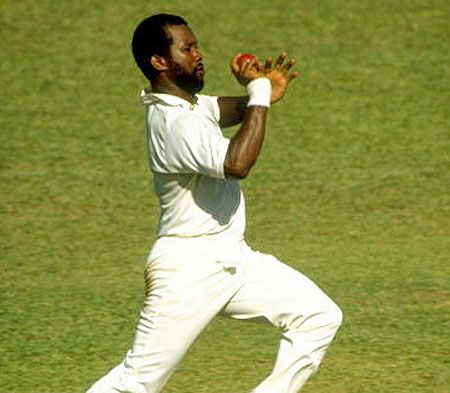
"There was just no respite for the batsman as each fast bowler would come charging in towards you," Boycott remembers, "always fresh and frightening."
What a bunch of fast bowlers they were. In the days when there were no restrictions on bouncers per over, they would go about their unbridled way in a menacing manner. Whether you're up against Andy Roberts or Michael Holding, , Colin Croft or Joel Garner, Malcolm Marshall or Sylvester Clarke, you would be bombarded with a barrage of bouncers and awkwardly, threateningly lifting short-pitched deliveries," he recalled.
"Fast bowlers usually hunt in pairs. But the sustained four-pronged West Indian pace attack meant you were perennially up against the fearsome foursome. There was just no respite for the batsman as each fast bowler would come charging in towards you, always fresh and frightening. Many a time the four men would finish the demolition job in a jiffy and share the spoils between them."
"England had several batsmen who could play these bowlers with some success: Graham Gooch, David Gower, Allan Lamb. And so did Australia and India. But those West Indian bowlers were simply too quick and dangerous, both individually and collectively. I'm happy in that I essayed some of my best innings against them."
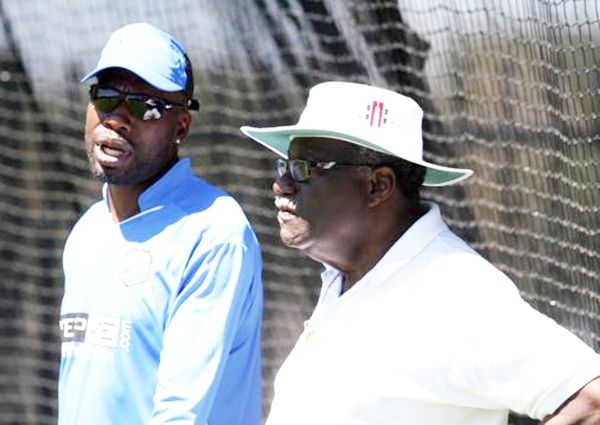
"I wonder if many of today's batsmen, boasting many runs and centuries and high averages against stingless bowling attacks across the world, would have been as successful against Roberts and company," asks Boycott.
Boycott is of the view that unless you are truly tested on a fast and bouncy wicket by a set of brutally fast and hostile bowlers, like he and Gavaskar did more than three decades ago, you cannot be called 'great,' howsoever impressive your stats and achievements.
"Today's West Indian fast bowlers are a joke. When I see many of today's batsmen plunder runs against these new ball bowlers, my mind usually go back to the days when Roberts, Holding, Croft, Garner, Marshall, Clarke were at the pinnacle of their prowess. I wonder if many of today's batsmen, boasting many runs and centuries and high averages against stingless bowling attacks across the world, would have been as successful against Roberts and company," Boycott said, mincing, as his wont, no words.
"What's the point scoring a plethora of runs on docile pitches and against toothless attacks? Don't get carried away by a batsman who has amassed plenty of runs on featherbeds against listless bowlers. Let him prove his ability against genuinely quick bowlers on wickets conducive to fast bowling. Let him prove his ability against the best of spinners on a spin-friendly pitch or a rank turner. Let him prove his ability by scoring runs in trying circumstances and under tremendous pressure."
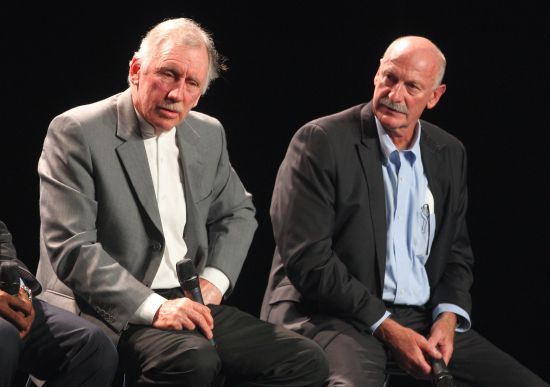
"It was one hell of a task to face and score runs against Lillee and Thommo firing on all cylinders," says Boycott.
The West Indies was the team to beat in the 1970s and 1980s. Without a shadow of doubt they are my biggest, strongest opposition and it always felt good to play well and score runs against them. And both Clive Lloyd and Viv Richards had to face what you call an embarrassment-of-riches syndrome as many talented fast bowlers couldn't cement their place in the West Indies team. Wayne Daniel was a prime example."
Boycott said your troubles did not start and end with the West Indies. Down Under there were Dennis Lillee and Jeff Thomson, who loved to "terrorise" batsmen, particularly Poms, as they would call the Englishmen.
"Lillee and Thommo were extremely fast and difficult bowlers to face. Both were in a class of their own. There was Max Walker and Gary Gilmour, but they were nowhere near as good as Lillee and Thommo. Later there was Rodney Hogg. But he, too, wasn't in the same class. It was one hell of a task to face and score runs against Lillee and Thommo firing on all cylinders."
"The English batsmen were so scared of playing against someone like Mitchell Johnson not long ago that I wondered how they would have faced, and fared, against Lillee and Thommo as well as all those West Indian fast bowlers."
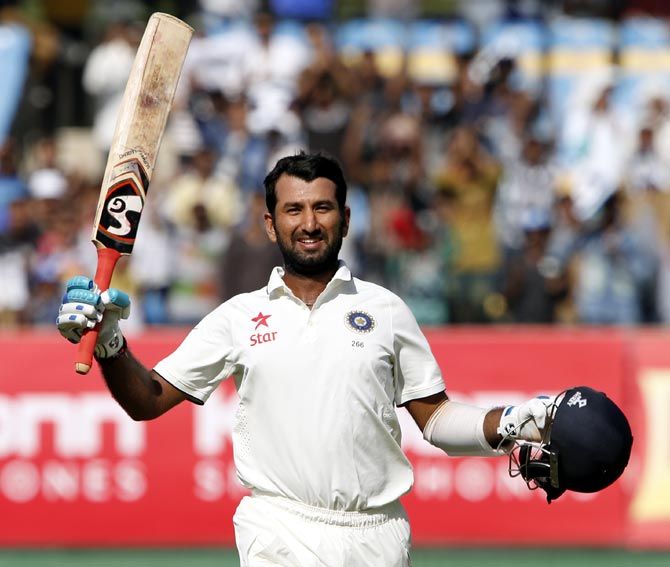
"That boy, Pujara, also looks solid," says Boycott. High praise from a batsman whose style was synonymous with soldity on the pitch.
Asked how he finds, and rates Virat Kohli, the outspoken Englishman said the Indian captain had "impressed" him a lot.
"Kohli is a fine, attractive batsman, looks sound technically and temperamentally. He never hesitates to play his shots against any bowler and in any situation. It shows his confidence in his own ability. That boy, Cheteshwar Pujara, also looks solid. Both Kohli and Pujara have proved themselves in India and abroad on all types of wickets and against all opposition," he added.
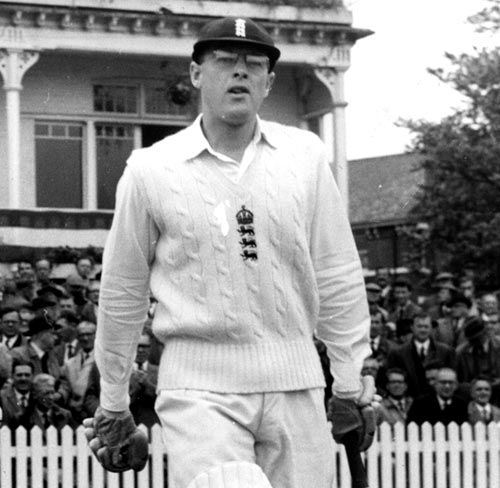
What led him to missing those 30 odd Tests in his prime?
Boycott seemed to regret his decision of making himself unavailable for England selection after the outgoing Ray Illingworth was replaced by Mike Denness as England's captain in late 1974, consequently missing 30 odd Tests, before returning, with a trademark century (his 100th in first class cricket) in his comeback Test, against Australia at Headingley, Leeds, in 1977.
"There are some decisions you make at certain times in your life, in your career, in the prevailing circumstances. They may have appeared perfect to you at that particular time. Later you may wonder, in some cases, whether they are the right decisions."











